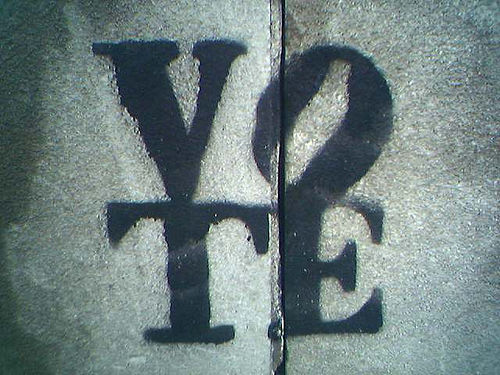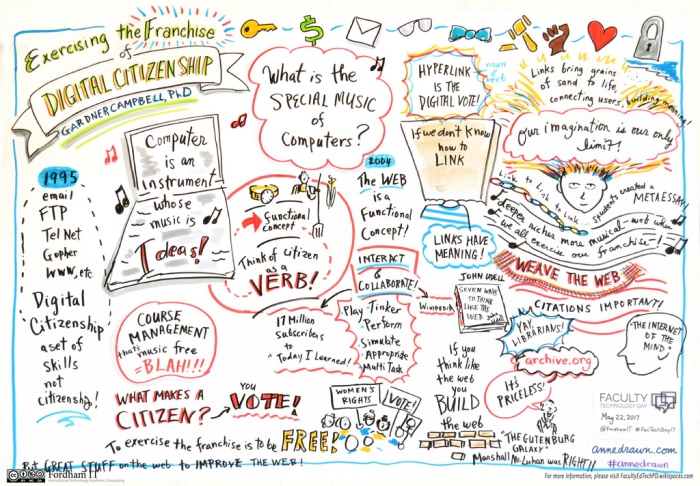Every year, my class participates in Student Vote. We learn about the electoral system, research candidates, and go through the motions of voting. I try to create an authentic experience for them, highlighting what it means to be a Canadian citizen.

Digital citizenship, however, isn’t quite so easy. Many teachers assume that the younger generation knows more about technology than they do. This is true in a lot of respects, however, many teachers overlook that students require knowledge in 9 different fields, according to Mike Ribbel. Denying a student an education in any one of these areas means not giving them a complete picture of what it means to be a digital citizen.
The nine elements of digital citizenship:
- Digital Access
- Digital Commerce
- Digital Communication
- Digital Literacy
- Digital Etiquette
- Digital Law
- Digital Rights and Responsibilities
- Digital Health and Wellness
- Digital Security (Self-Protection)
Often, we impose rules on students. Don’t go on Facebook. Don’t take videos during class, don’t buy stuff on eBay while I’m lecturing. However, teachers lack the training to truly educate the essence of being a digital citizen. It is not simply adhering to rules. We must teach our students to think for themselves and use their judgment. We do a good job of this in all subject areas, however, this is one area where many teachers feel inadequate. Students need to feel comfortable enough to engage online, not just observe and consume. This is what it means to be a citizen.

Don’t get me wrong, this feeling of inadequacy, and having the students be experts/teachers themselves is fantastic. However, the teacher needs to have and ultimate goal in mind and a working knowledge of digital citizenship to get there.
It is never too early to begin teaching digital citizenship. Just like treaty education, it is important to start early and to “dive in” despite thinking you are not informed enough. Learning alongside students goes a long way and models the learning process for them. If students start early, discovering and laying the groundwork, they will subconsciously be equipped with a working knowledge of what it means, in general and to them, to be a digital citizen.
They will also be well on their way to forming their digital identity. The knowledge of digital citizenship will allow them to create an identity that will not come back to haunt them later on in life, like this example. Students will be able to paint a picture of themselves, from the beginning, that will present themselves to the world in a positive, confident, intelligent, and mindful way. As I mentioned in a previous blog post, this is becoming increasingly more crucial (specifically in the job market) because your digital identity is the new “first impression”.
I like that image you have about Digital Citizenship. It really helps to have a visual for me to learn about topics like this. I agree that it is important to model what it looks like to learn along with the students and I’m hoping when I am a teacher in the classroom I am humble enough to do this! Often I feel like teachers without knowledge (such as you mentioned about Treaty Education) are very hesitant to show that they don’t know, and so they just don’t do it. I enjoyed your thoughts on the topic, thanks!
LikeLiked by 1 person
Thanks for reading. I appreciate you sharing your thoughts!
LikeLike